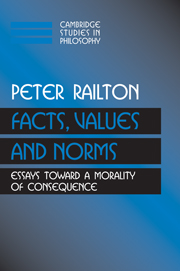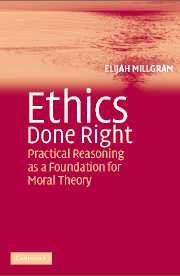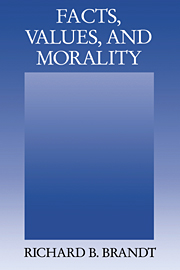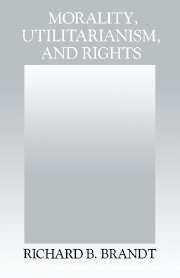Facts, Values, and Norms
We struggle daily with the notions of why we do what we do and of assigning values to our actions, although it seems possible through experience to gain knowledge and understanding of such matters. In contrast to the world of facts, values and morality seem insecure, easily influenced by illusion or ideology. How can objectivity and accuracy be applied to values and morality? Peter Railton's study reveals how a naturalistically informed view of the world might incorporate objective values and moral knowledge.
- Was the first time Railton's papers on ethics had been collected into a single volume
- The style is lively and accessible
- Covers a wide range of areas and levels within ethics and value theory
Reviews & endorsements
'This is a book the serious ethicist should not be without, and I particularly recommend it for those interested in metaethics.' Milltown Studies
Product details
March 2003Paperback
9780521426930
410 pages
232 × 153 × 25 mm
0.54kg
Available
Table of Contents
- Part I. Realism about Value and Morality:
- 1. Moral realism
- 2. Facts and values
- 3. Noncognitivism about rationality
- 4. Aesthetic value, moral value, and the ambitions of naturalism
- 5. Red, bitter, good
- Part II. Normative Moral Theory:
- 6. Alienation, consequentialism, and the demands of morality
- 7. Locke, stock, and peril
- 8. How thinking about character and utilitarianism might lead to rethinking the character of utilitarianism
- 9. Pluralism, dilemma, and the expression of moral conflict
- Part III. The Authority of Ethics and Values - The Problem of Normativity:
- 10. On the hypothetical and non-hypothetical in reasoning about thought and action
- 11. Normative force and normative freedom
- 12. Morality, ideology, and reflection
- or, the duck sits yet.





